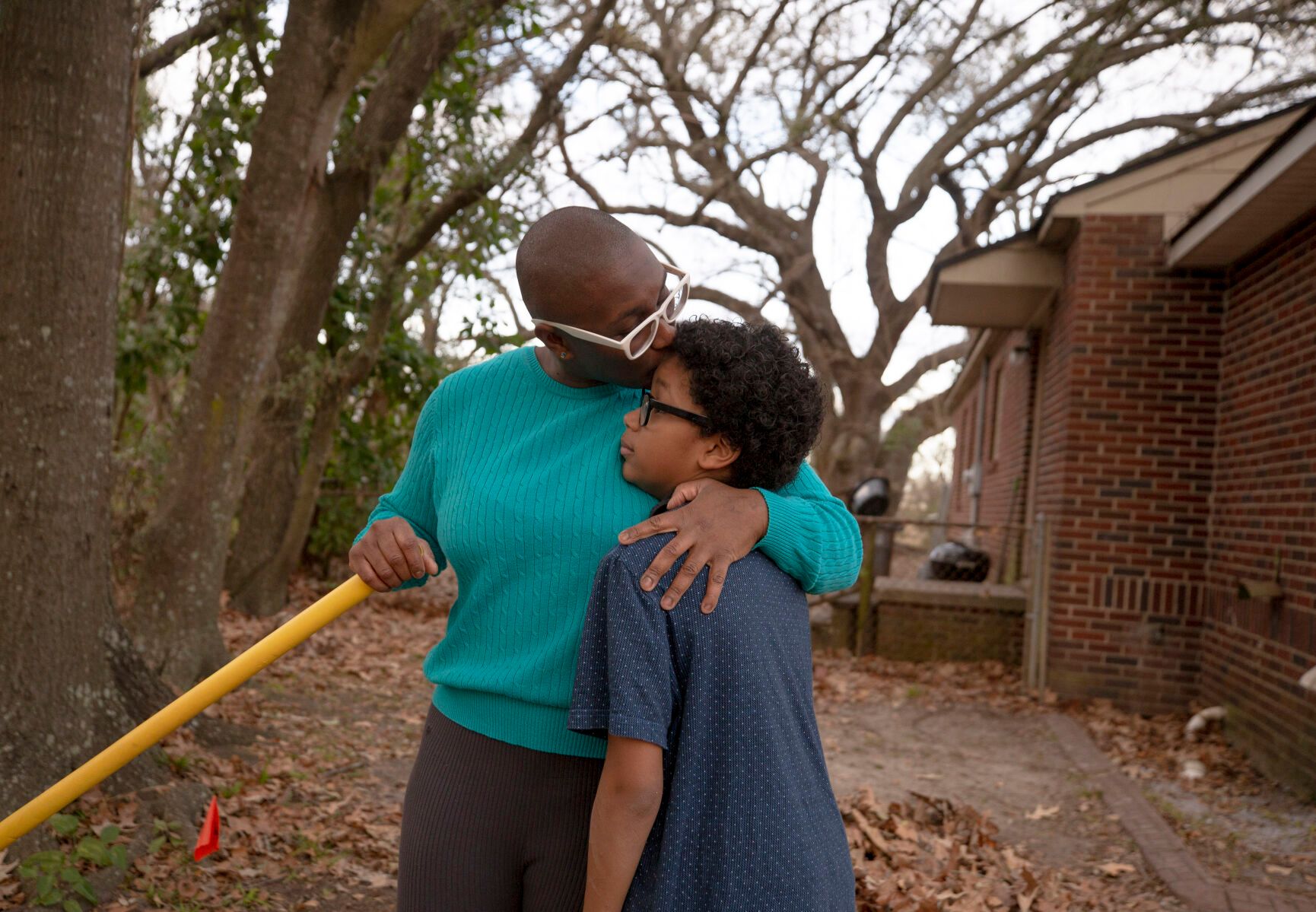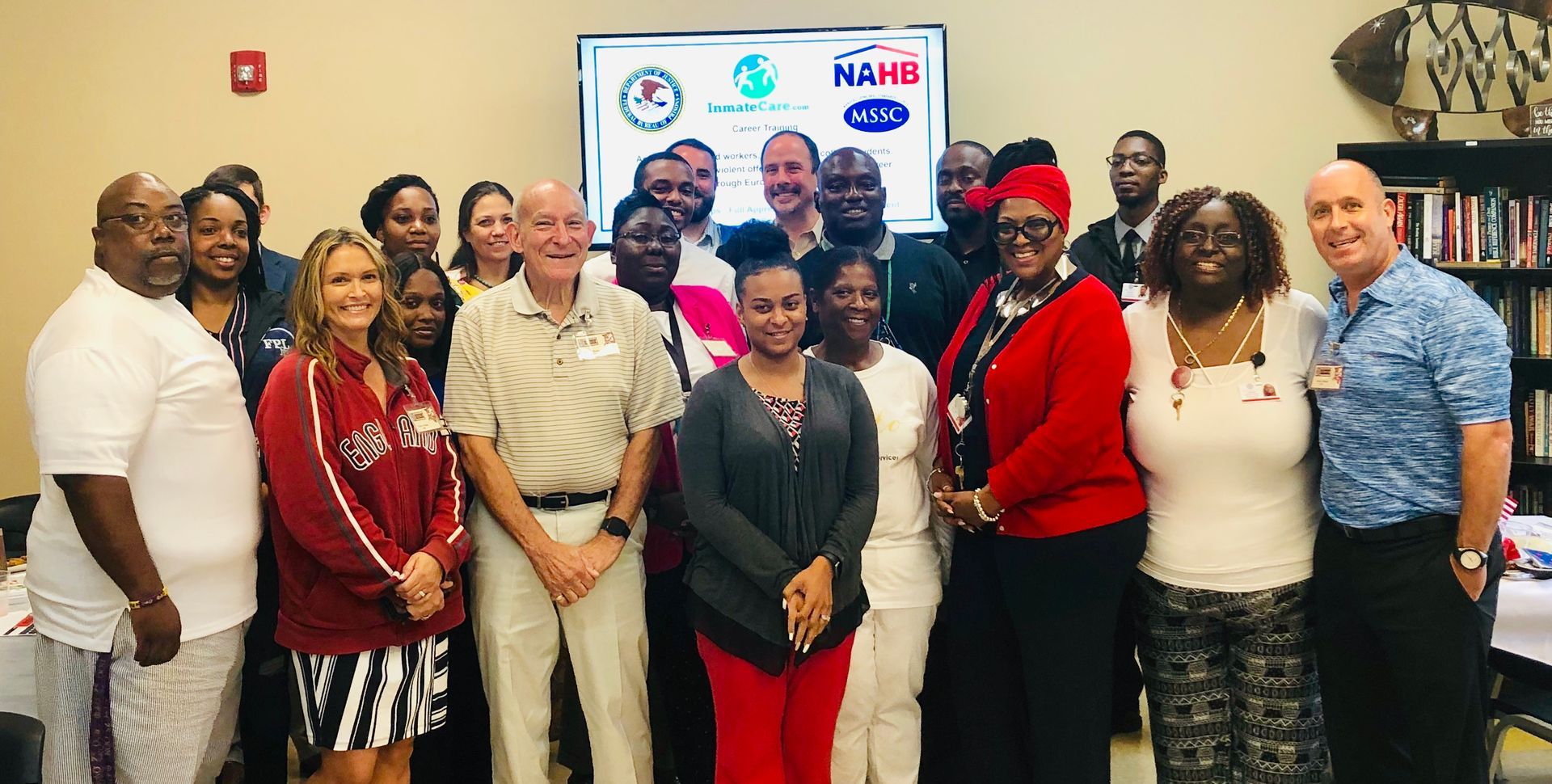Finding a Job After Incarceration: Interview Help After Prison
The Interview
On the day of her interview, Leah woke up extra early. She wanted to have enough time to put in effort in her appearance and be presentable for her new potential job. She applied minimal makeup, washed her hair, and paired a new blouse with her favorite white pants. She had practiced the typical interview questions with her seven-year-old son the night before: Tell me about yourself. What are your strengths and weaknesses? How would you be a valuable asset to our company? After dropping her son off at school, Leah drove to the interview and held her head high, ready to take the first step into her future.

When her name was called, Leah walked into the hiring manager’s office and clung to her copy of her resume. She knew the company had her resume already, but she wanted the freshly printed copy in her hand, below her nose, to refresh her memory if she found herself stuck on a question.
The interview began with the usual grueling questions, but Leah had prepared for this. She had the right education and job experience to match the job, and the interview felt like it was flying by after a few laughs and shared stories with the manager. As he scanned down her resume, the hiring manager applauded Leah’s impressive certifications and skills, but stopped as he recognized a gap in the timeline. She was then asked the question she knew was coming, the one that, in her experience, led to a quick handshake and never hearing back from them again, even though the past twenty minutes went by perfectly well. “Can you explain this gap in your job history?”
Leah swallowed, but even this she had an answer for. “Yes, and I’d like to be honest with you instead of you finding out through a background check. I served two years of time at a correctional facility three years ago. It was a difficult time, trying to provide for my son, but I developed a lot of patience and discipline that I am now able to implement in my life, and what I’d like to bring to my work.” She explained what she’s accomplished since then, and referred back to her job experience and education.
At the end of her speech, she asked the hiring manager if he had any questions about what she had said.
“When can you start?”

Walking Into the Interview
It’s difficult to find a position or company that will work with you, rather than against you, when confronting your background. It is important to remember that those months or years you spent in a correctional facility do not have to define you or even be referred to as your “background.” The difference lies in how you approach your situation, how you speak about it, and how you move forward from it.
When preparing for your interview, start by remembering a time when you felt most secure and at the top of your game. With this mindset, it will be easy to come across as an excellent candidate and leave a good impression.
- Start the interview by thanking the interviewer for the chance to be interviewed. Being polite can open many doors.
- Give short answers to difficult questions and long answers to simple questions. Spend more time on the things you want to talk about.
- Prepare and practice answers for tricky or difficult questions you think they might ask.
- Steer the conversation towards your strengths.
Remember, an interview is a space where you can ask questions, too. Come prepared with questions about the job and what it entails. Ex: “Why did the person with the job before me leave your company? What are the daily functions for your employees? Is there room for me to grow here? What are you looking for in an employee for this position? What do you need accomplished within the first month of this job?” Not only will these answer your own questions, but they will show the employer that you care, you are motivated, and you are ready to bring success to their company.

Discussing Your Record During the Interview
Most employers will run a background check before hiring anyone, so do not run the risk of lying about your history. Remain honest. When filling out an application, answer any questions regarding convictions with a short and simple response: “Will explain in interview.” It’s also smart to practice how you’ll approach this question during the interview. Stay brief and concise by spending no more than a minute explaining the subject. Keep eye contact with the hiring manager and remember to be open and maintain a sense of compassion and peace. The employer will match your calm energy and instead of shutting you down for your past, they will be focused on who you are now.
This is where you can lead into your “turnaround talk,” which is the speech most formerly incarcerated members must provide in several situations, whether they realize it or not. It’s the talk in which you explain where you were for a portion of time but follow it up with ways you have turned your life around after what you experienced and learned in your time away. The turnaround talk is designed to change the employer’s way of thinking. Now, they will be empathetic to your situation and understand where you are coming from, along with where you want to go.
Here are some examples that can lead to your turnaround talk:
- “I had a problem.” – Share enough detail to explain the issue was not work-related and make it brief, avoiding any trigger words. Show remorse; understand what you did and how it affected others.
- “My crime doesn’t define me.”
- “Through rehabilitation, I truly have been rehabilitated.” – Convince them it wouldn’t happen again now that you have grown, learned, and changed.
- “I am now clean and sober and attend NA/AA meetings weekly.”
- “If you had any questions about what I’ve said, please ask.”
As an extra step, provide a “turnaround packet” in the interview. This may include:
- Any training, schooling or DEUCE (or other institutional substance abuse treatment program) certificates.
- Reference letters.
- Letters from volunteer work.
- A clean DMV print out.
- Copies of accomplishments.
- Papers stating honorable or general discharge from military, if applicable.
- Evidence of enrollment in GED or Adult Education.
- Letters of recommendation from former employers even if before incarceration.
- Any evidence that demonstrates you have turned your life around and your incarceration experience has turned out to be a strength and character builder.
Six Tips to Land the Job
- Make the hiring manager like you. Make a personal connection and leave an impression.
- Find a reason to care about the hiring manager. Do some research before the interview. This can be done via LinkedIn, Facebook, or the company website. Find out where they have worked and what their interests are. During the interview, try to draw out some stories from them and remember that they are a human, not someone who decides your worth by telling you “yes” or “no” at the end of your meeting.
- Show off your passion for the job you’re interviewing for. If you don’t actually seem interested in the position, why would they want to hire you and why would they want to work there? Research the company before your interview and find out how you can benefit the company by helping the employer solve its problems.
- Tell stories about your skills using a problem, approach, resolution approach. Tell each story in 30-60 seconds about previous job issues and times you’ve encountered a problem and discuss how you are a problem solver and how it led to a positive resolution.
- Know when it is time to speak. Obviously, when you are asked a question, it’s your time to speak, but don’t spend too much time on one question either. Never spend more than 90 seconds answering a question or else you may come across as rambling.
- Close the sale. At the end of the interview, lead back to how you are interested in this position and ask when you will hear back. Use the language you feel most comfortable using; you’ll want to sound confident, not desperate.
For a guaranteed job position no matter your background, visit https://secondchancejobs.org or call 866-724-2623.







